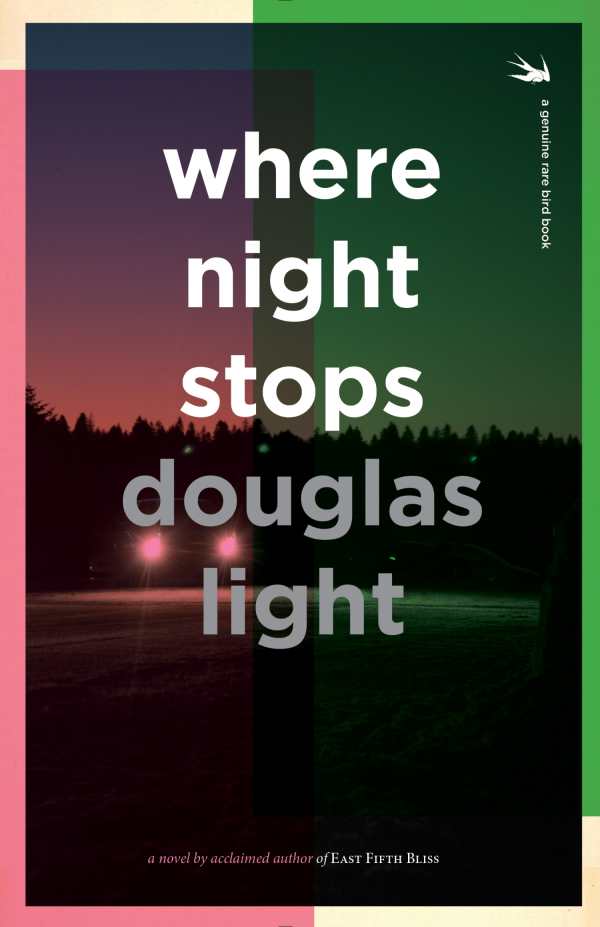Where Night Stops
This satisfying crime thriller is elevated by its twisting writing and snappy dialogue.
Douglas Light’s fast-paced Where Night Stops is a well-executed thriller that combines genre staples with literary style.
Orphaned and living in a shelter, the unnamed protagonist befriends a mysterious man, Ray-Ray, who has considerable money despite being homeless. Ray-Ray shows him the ropes and promises they will look out for one another.
When an intimidating stranger shows up, Ray-Ray flees, leaving the narrator a code and an assignment: deliver a package and pick up some money. It seems like easy, low-risk work, but only at first.
Just twenty-two when the story begins, the narrator falls into a life of global pickups and drop-offs, and his assignments grow more and more dangerous. His contacts turn up dead, or they try to kill him. Through key twists, the narrator struggles to figure out who he can trust, how his mysterious employer tracks his movements, and whether he’s better off trying to stay off the grid.
The whole story is told from a first-person perspective, following the narrator’s thought processes and motivations and conveying his confusion as details are revealed. Throughout, he discusses his culpability in the deaths of his parents and best friend, which helped bring him to the low state at which he begins. The narrator’s voice and his conversations are fun to read, effectively conveying the challenges presented by unexpectedly leading a life of crime.
Gaps are gradually filled as the book moves along. A parallel story is used as a framing device: the narrator meets with a woman in a Florida bar who is clearly trying to pick him up. That subplot matches up nicely with the main plot even before its purpose is clear.
Where Night Stops reads like a familiar and satisfying crime thriller, though it is elevated by its twisting writing and snappy dialogue. It’s fun and fast, and its intrigue is enjoyable.
Reviewed by
Jeff Fleischer
Disclosure: This article is not an endorsement, but a review. The publisher of this book provided free copies of the book to have their book reviewed by a professional reviewer. No fee was paid by the publisher for this review. Foreword Reviews only recommends books that we love. Foreword Magazine, Inc. is disclosing this in accordance with the Federal Trade Commission’s 16 CFR, Part 255.

